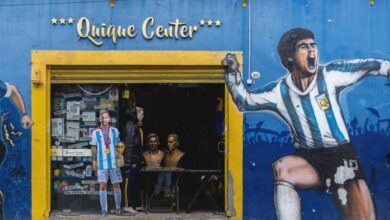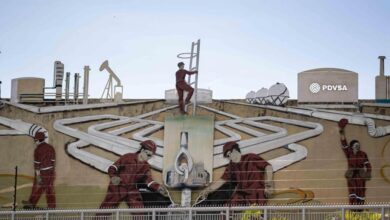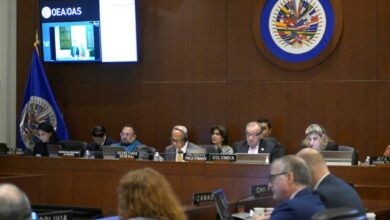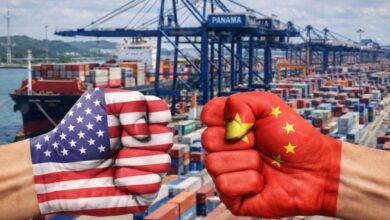No more cheap gasoline: The end of the energy subsidy in Venezuela
The economic crisis in Venezuela will force to reduce the subsidies of the population in order to fight inflation. There are still doubts about whether it will work

President Nicolás Maduro announced, as one of the measures of the economic recovery program, a census of all the country's automobile fleet (public and private) in all its forms. This will offer information that will later be crossed with the Carné de la Patria (Country Card) for the distribution of subsidies.
Leer en español: Ya no más gasolina barata: El fin del subsidio energético en Venezuela
"We need to have the census of the country's automobile fleet for new policies of support and subsidy of transport in general, to a good listener, a good transportation census, the time has come," Maduro announced on national television.
Among the measures announced by the president, is the implementation of the new monetary cone called "Sovereign Bolivar", which aims to deal with hyperinflation and cash shortages.
At this time, Venezuelans have doubts about how basic services will be paid since, being subsidized, they have a cost below the most devalued currency of the new monetary cone.
You may also be interested: 3 Extreme measures: Maduro's “insane” responses to the crisis
What do the experts think?
According to economists Asdrúbal Oliveros and Guillermo Arcay, with these announcements the president gave indications that a reduction of the energy subsidy in the form of an increase in the price of gasoline could be approaching. Well, during his speech he stressed the need to carry out a census of the car park and the possible use of the Carné de la Patria as a mechanism for receiving a subsidy focused on gasoline. In short, the price of gasoline would increase asymmetrically and those with the card would pay less.
The increase in gasoline could help reduce the fiscal deficit and the need for monetary financing. However, in a hyperinflationary context, this measure would have to be developed in the midst of a periodic increase so as not to lose effect.
Two proposals: increase or internationalization of prices
During the congress of the United Socialist Party of Venezuela (PSUV), which took place last weekend, the price of gasoline was one of the central axes that focused the discussion.
The Minister of Education, Elías Jaua, of the PSUV national leadership, affirmed that there are two proposals: "a progressive increase in the price of fuels and (…) a policy of internationalization of prices."
The price of gasoline is one of the distortions that abound in Venezuela since, by April of this year, with a dollar you could buy 400,000 liters of gasoline according to the magazine Banca y Negocios. However, everything else is expensive thanks to hyperinflation that this year could reach 1,000,000%, according to the International Monetary Fund (IMF), a percentage that according to some experts falls short.
Implement the measure with care
Leaders of the ruling party, such as Freddy Bernal, or Diosdado Cabello, declared themselves in favor of the measure as they believe that fuel tariffs should be adjusted progressively. Since the current price is a "ridiculous price", and it is not possible to continue giving away the fuel; Bernal believes that the automotive census, which began on Friday, August 3, is important to know who they are, how many they are and where the Venezuelans who own vehicles are. This is intended to determine the price of fuel and how to subsidize it directly with the Carné de la Patria.
For his part, the constituent, engineer and university professor, David Paravisini said that the price of gasoline, as well as public services such as electricity, water and the metro, should be increased to the extent that begins to govern the new monetary cone. In order to be able to update the costs and carry out improvement works in those sectors, and assured that using the Carné de la Patria could be an alternative to access the subsidies since, the use of this mechanism has been successful for other benefits granted the government for the welfare of the population, without this meaning that it is exclusive or discriminatory.
"A recognition of the failure of Venezuela's energy policy"
For his part, the member of the Energy and Petroleum Commission of the National Assembly (AN) and deputy, Jorge Millán, assured that the issue of fuel and the possible implementation of using the Carné de la Patria is an "acknowledgment of the failure of the energy policy of Venezuela.”
Another deputy who was against was José Gregorio Correa, who explained that the possible implementation of the Carné de la Patria as payment method for fuel represents a form of exclusion of those who think differently from the government. This is because the Carné de la Patria has been seen since its inception, thanks to the propaganda and the government's speech, as a measure directed at the pro-government sectors.
The parliamentarian said that "a society cannot live on its knees to a Carné de la Patria, everyone has the right to buy what he wants, where he wants, in what seems, there is no more delay than those CLAP (Local Committee of Supply and Production), here what should have is national production ".
In addition, the political scientist Nicmer Evans, warned that, after the convocation of the National Transport Census, hides the intention to create a kind of "CLAP gasoline" to collect gasoline with the Carné de la Patria.
LatinAmerican Post | Camila González C.
Copy Edited by Laura Viviana Guevara Muñoz





